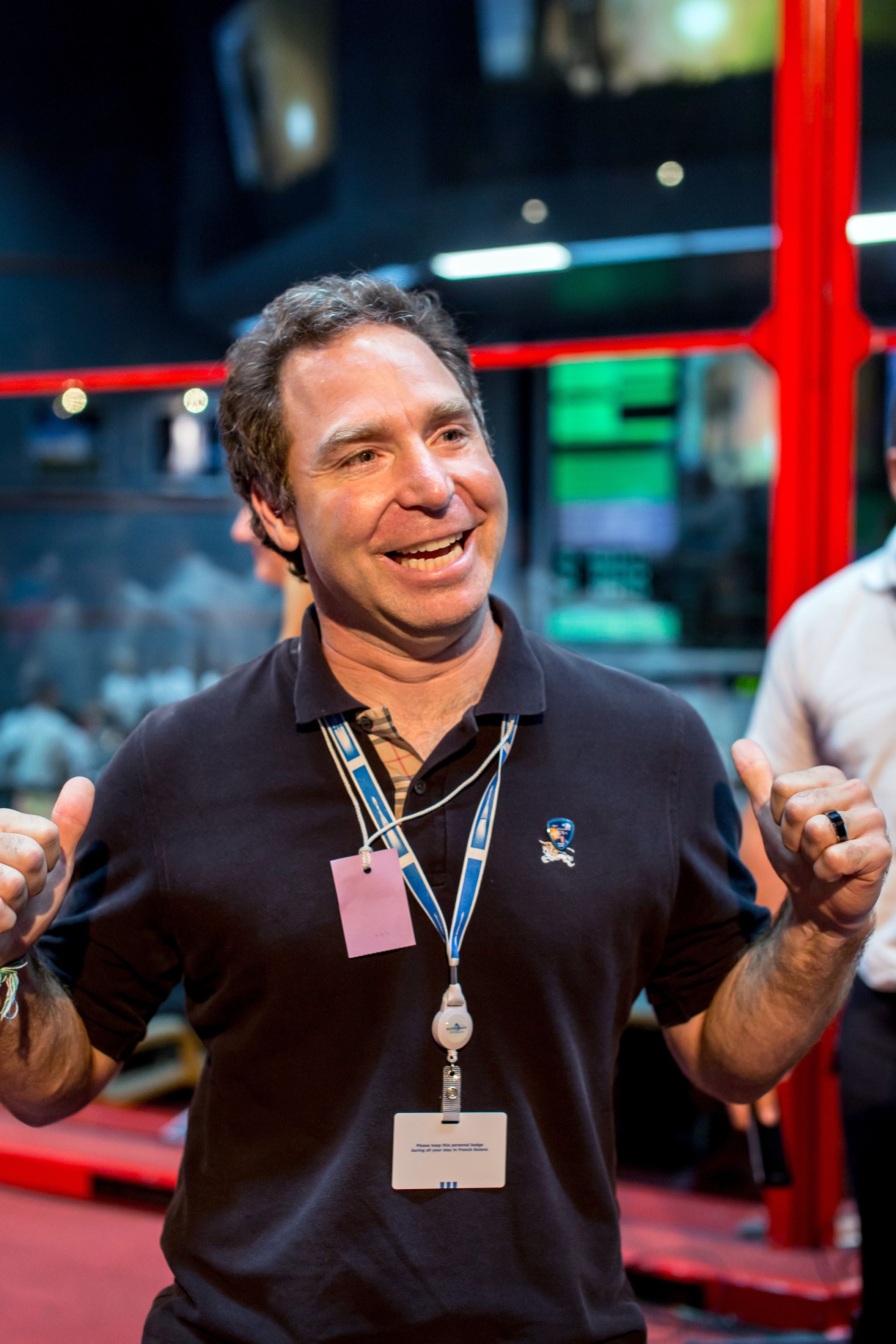OneWeb founder’s new venture aims to make satellites that fight space debris
After leaving OneWeb after the company’s 2020 bankruptcy, founder Greg Wyler launched E-Space, which aims to build a satellite constellation that fights space debris

Your support helps us to tell the story
From reproductive rights to climate change to Big Tech, The Independent is on the ground when the story is developing. Whether it's investigating the financials of Elon Musk's pro-Trump PAC or producing our latest documentary, 'The A Word', which shines a light on the American women fighting for reproductive rights, we know how important it is to parse out the facts from the messaging.
At such a critical moment in US history, we need reporters on the ground. Your donation allows us to keep sending journalists to speak to both sides of the story.
The Independent is trusted by Americans across the entire political spectrum. And unlike many other quality news outlets, we choose not to lock Americans out of our reporting and analysis with paywalls. We believe quality journalism should be available to everyone, paid for by those who can afford it.
Your support makes all the difference.OneWeb founder and serial space entrepreneur Greg Wyler’s new venture E-Space has announced $50m in investment funding Monday to build a satellite communications satellite constellation that’s resilient to space debris.
In a press release, E-Space stated its satellite network will provide inexpensive satellite communications and infrastructure control services using satellites designed to resist fragmenting when struck by space debris and to quickly re-enter the Earth’s atmosphere if damaged.
The seed money comes from US-based investment company Prime Movers Lab, and E-Space stated the $50m will be enough money to fund the company’s first satellite test launch scheduled for March, and a second launch sometime later in 2022. The Toulouse, France-based E-Space aims to begin mass production of its satellites in 2023 and to launch, eventually, as many as 100,000 small satellites for its network.
Concern over the threat posed by space junk and debris has increased in recent months following the Russian military’s test of an anti-satellite missile in November. The missile destroyed a former Soviet satellite and created a debris field that threatened the International Space Station.
The ISS later took evasive maneuvers to avoid a piece of space debris from a US rocket launch in 1994, while China has criticized US space company SpaceX after the Chinese space station had to take evasive action to avoid colliding with SpaceX’s Starlink satellites.
Debris from space launches or collisions between pieces of debris can threaten existing satellites and spacecraft, potentially turning them into dangerous navigational hazards as well. Even very small pieces of debris can cause damage due to the tremendous velocities at which they travel — in excess of 100,000 kilometers per hour — and can stay in orbit for decades.
E-Space claims its satellites will present a small cross section to debris, lowering the risk of collision, and will orbit in such a way that if they become disabled, the friction of the upper atmosphere will rapidly and naturally degrade their orbit. The company also claims its satellites will resist fragmenting if struck by fast moving space debris and capture such material for eventual deorbiting — a technical challenge given the energies involved in orbital collisions.
It’s not yet clear if massive satellite constellations can be designed to be truly sustainable when it comes to preventing space debris. As the Chinese space station and Starlink satellites’ close passes make clear, there’s a risk of collision among fully operational space assets, and one that may grow inexorably with the number of satellites and spacecraft launched. Harvard Astrophysicist Dr. Jonathan McDowell has frequently told the press that the risk of collision increases as the square of the number of objects in orbit, so that flying 10 times as many satellites increases the expected number of near-collisions by 100 times.
If E-Space eventually launches 100,000 satellites, they will join the 42,000 or more satellites SpaceX plans to launch as part of its Starlink megaconstellation, and the 7,000 or so satellites planned by OneWeb.
Mr. Wyler founded OneWeb in 2012 with the goal of providing worldwide broadband internet coverage. The company filed for bankruptcy in March 2022 and Wyler left. One Web.
In November 2020, OneWeb emerged from bankruptcy with new owners — Bharti Global and the UK government.



Join our commenting forum
Join thought-provoking conversations, follow other Independent readers and see their replies
Comments